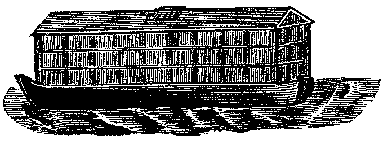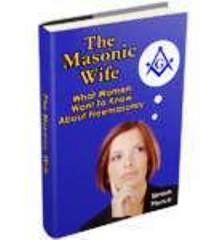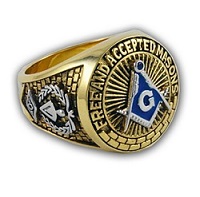Anchor and the Ark


The Anchor and the Ark are emblems of a well-grounded hope and a well-spent life.
The Anchor is an emblem of hope, peculiarly a Christian, and thence a Masonic symbol.
The following and foregoing information may be found in Mackey’s Revised Encyclopedia of Freemasonry, Volume 1, 1929.
It is first found inscribed on the tombs in the catacombs in Rome, and the idea of using it is probably derived from the language of Saint Paul.
(Hebrews 6:19): “Which hope we have as an anchor of the soul, both sure and steadfast.”
Primitive Christians looked upon life as a stormy voyage, and glad were the voyagers when it was done, and they had arrived safe in port. Of this, the anchor was a symbol and when their brethren carved it over the tomb, it was to them an expression of confidence that he who slept beneath it had reached the haven of eternal rest. …Kip, Catacombs of Rome, page 112.
Sacred and Legendary Art, I, page 34, Mrs. Jameson: “The anchor is the Christian symbol of immovable firmness, hope and patience; and we find it very frequently in the catacombs and on the ancient Christian gems.”
This representation of the anchor is the peculiar attribute of Saint Clement, and is often inscribed on churches dedicated to him.
The ark, (or ship) has been adopted as a symbol of the voyage of life; but, unlike the anchor, it was not confined to Christians, but was with the heathens also a favorite emblem of the close of life.
Kip thinks the idea may have been derived from them by the Christian Fathers, who gave it a more elevated meaning.
In Freemasonry, the ship has been substituted by the ark.
Mrs. James says in the above work that “the Ark of Noah floating safe amid
the deluge, in which all things else were overwhelmed, was an obvious symbol of
the Church of Christ…The bark of St. Peter tossed in the storm and by the
Redeemer guided safe to land, was considered as symbolical.”
In the Third Degree, whose teachings all relate to life and death, “The
anchor and the ark are emblems of a well-grounded hope and a well-spent life.
They are emblematical of that Divine ark which safely wafts us over this
tempestuous sea of troubles, and that anchor which shall safely moor us in a
peaceful harbor where the wicked cease from troubling and the weary shall find
rest.”
Such is the language of the lecture of the Third Degree, and it gives all the
information that is required on the more mysterious (esoteric) meaning of these
symbols.
The Anchor, as a symbol of hope, does not appear to have belonged to the
ancient and classic system of symbolism.
End Albert Mackey. Credit and full acknowledgment for information about the anchor and the ark is given to Albert Mackey, Mackey’s Revised Encyclopedia of Freemasonry, Volume 1, 1929.
Related Pages:
Back to the list of Freemason Symbols
5 Fast Methods To Find the Information You Want to Learn About
- Search Box - Use the Search Box at the top of your page.
- Site Map - Use my Site Map page to find the topics you are most interested in.
- Carousel - Use the carousel of pages at the top of your screen.
- Menu Icon - On MOBILE, click the MENU button at the top of each page.
- Masonic Books - Browse through a selection of Masonic books.






